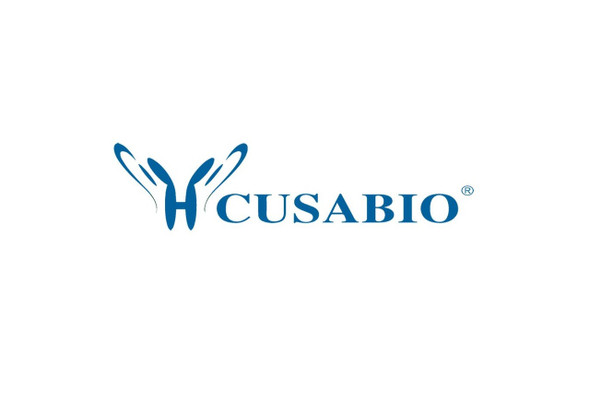Cusabio Saccharomyces cerevisiae Recombinants
Recombinant Saccharomyces cerevisiae Diphosphoinositol polyphosphate phosphohydrolase DDP1 (DDP1) | CSB-EP860334SVG
- SKU:
- CSB-EP860334SVG
- Availability:
- 13 - 23 Working Days
Description
Recombinant Saccharomyces cerevisiae Diphosphoinositol polyphosphate phosphohydrolase DDP1 (DDP1) | CSB-EP860334SVG | Cusabio
Alternative Name(s): Diadenosine 5',5'''-P1,P6-hexaphosphate hydrolase Short name: Ap6A hydrolase Diadenosine and diphosphoinositol polyphosphate phosphohydrolase 1 Diadenosine hexaphosphate hydrolase (AMP-forming)
Gene Names: DDP1
Research Areas: Others
Organism: Saccharomyces cerevisiae (strain ATCC 204508 / S288c) (Baker's yeast)
AA Sequence: GKTADNHGPVRSETAREGRENQVYSPVTGARLVAGCICLTPDKKQVLMITSSAHKKRWIVPKGGVEKDEPNYETTAQRETWEEAGCIGKIVANLGTVEDMRPPKDWNKDIKQFENSRKDSEVAKHPPRTEFHFYELEIENLLDKFPECHKRHRKLYSYTEAKQNLIDAKRPELLEALNRSAIIKDDK
Source: E.coli
Tag Info: N-terminal 6xHis-SUMO-tagged
Expression Region: 2-188aa
Sequence Info: Full Length of Mature Protein
MW: 37.4 kDa
Purity: Greater than 90% as determined by SDS-PAGE.
Relevance: May eliminate potentially toxic dinucleoside polyphosphates during sporulation. Most active against diadenosine 5',5'''-P1,P6-hexaphosphate (Ap6A). Can also hydrolyze diadenosine 5',5'''-P1,P5-pentaphosphate (Ap5A), adenosine 5'-pentaphosphate, and adenosine 5'-tetraphosphate are also substrates, but not diadenosine 5',5'''-P1,P4-tetraphosphate (Ap4A) or other dinucleotides, mononucleotides, nucleotide sugars, or nucleotide alcohols. Also cleaves a beta-phosphate from the diphosphate groups in PP-InsP5 (diphosphoinositol pentakisphosphate) and [PP]2-InsP4 (bisdiphosphoinositol tetrakisphosphate)
Reference: "The diadenosine hexaphosphate hydrolases from Schizosaccharomyces pombe and Saccharomyces cerevisiae are homologues of the human diphosphoinositol polyphosphate phosphohydrolase. Overlapping substrate specificities in a MutT-type protein."Safrany S.T., Ingram S.W., Cartwright J.L., Falck J.R., McLennan A.G., Barnes L.D., Shears S.B.J. Biol. Chem. 274:21735-21740(1999)
Storage: The shelf life is related to many factors, storage state, buffer ingredients, storage temperature and the stability of the protein itself. Generally, the shelf life of liquid form is 6 months at -20?/-80?. The shelf life of lyophilized form is 12 months at -20?/-80?.
Notes: Repeated freezing and thawing is not recommended. Store working aliquots at 4? for up to one week.
Function: May eliminate potentially toxic dinucleoside polyphosphates during sporulation. Most active against diadenosine 5',5'''-P1,P6-hexaphosphate (Ap6A). Can also hydrolyze diadenosine 5',5'''-P1,P5-pentaphosphate (Ap5A), adenosine 5'-pentaphosphate, and adenosine 5'-tetraphosphate are also substrates, but not diadenosine 5',5'''-P1,P4-tetraphosphate (Ap4A) or other dinucleotides, mononucleotides, nucleotide sugars, or nucleotide alcohols. Also cleaves a beta-phosphate from the diphosphate groups in PP-InsP5 (diphosphoinositol pentakisphosphate) and [PP]2-InsP4 (bisdiphosphoinositol tetrakisphosphate).
Involvement in disease:
Subcellular Location: Cytoplasm, Nucleus
Protein Families: Nudix hydrolase family, DIPP subfamily
Tissue Specificity:
Paythway:
Form: Liquid or Lyophilized powder
Buffer: If the delivery form is liquid, the default storage buffer is Tris/PBS-based buffer, 5%-50% glycerol. If the delivery form is lyophilized powder, the buffer before lyophilization is Tris/PBS-based buffer, 6% Trehalose, pH 8.0.
Reconstitution: We recommend that this vial be briefly centrifuged prior to opening to bring the contents to the bottom. Please reconstitute protein in deionized sterile water to a concentration of 0.1-1.0 mg/mL.We recommend to add 5-50% of glycerol (final concentration) and aliquot for long-term storage at -20?/-80?. Our default final concentration of glycerol is 50%. Customers could use it as reference.
Uniprot ID: Q99321
HGNC Database Link: N/A
UniGene Database Link: N/A
KEGG Database Link: KEGG
STRING Database Link: STRING
OMIM Database Link: N/A









